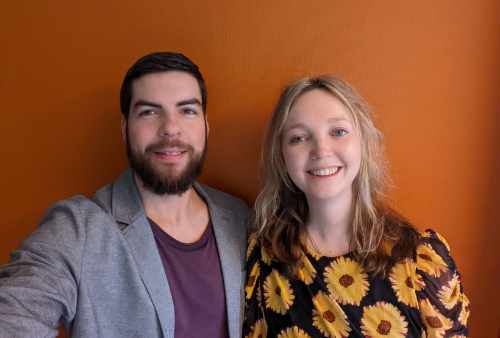Psychedelics can be incredibly healing but also come with risks. As you prepare for your first guided psychedelic session, it’s essential to understand those risks to minimise them and have the safest, most meaningful experience possible.
In this post, I want to explore the potential short-term and longer-term harms that can happen after taking psychedelics like psilocybin truffles. My goal isn’t to scare you away from these powerful substances but to empower you with knowledge so you can use them wisely.
As an experienced guide who has supported people through their psychedelic journeys, I’ve seen how proper preparation and integration practices dramatically reduce the chance of adverse effects. I’ll share some of those best practices, too.
We’ll specifically cover:
- Short-term risks like difficult emotions, sensory changes, and psychological wounds reopening
- Longer-term risks including hallucinogen persisting perception disorder (HPPD), psychosis, and dissociation
- Ways to minimise risks through set, setting, dosing, and integration
While psychedelics aren’t risk-free, they can be used safely and responsibly. I want to provide a realistic perspective so you can feel informed and empowered going into your first session. With some forethought and care, you’ll be able to harness the transformative potential of psychedelics and navigate any challenges skillfully along the way.
Short-Term Risks After Psychedelic Use
1. Difficulty Integrating Emotions & Insights
One of the most common risks in the hours and days after a psychedelic session is difficulty integrating the intense emotions and insights you experienced. The experience may have been blissful and profound, but then you feel overwhelmed or confused afterwards when trying to make sense of it all.
Having an integration plan is vital – whether that’s talking with your guide, journaling to process emotions, discussing insights with a friend, or expressing yourself creatively. Without integration, you may feel shaken up or unable to ground the psychedelic experience into your daily life.
Also, see our article on what to do the day after a psychedelic session.
2. Re-experiencing Perceptual Changes
About 9% of people also re-experience some perceptual changes in the days after taking psychedelics. You may notice visual distortions, blinking lights, or alterations to your senses of sound, taste, or smell. These are usual after-effects that usually resolve within days or weeks.

3. Reopening Psychological Wounds
There’s also a risk of old psychological wounds reopening during the psychedelic experience. If you have a history of trauma, anxiety, depression, or other mental health conditions, those issues may bubble up as part of the inner exploration. This can be healing in the long run if you process the emotions with support. But in the short term, it can be destabilising and feel vulnerable. Having a therapist (outside of the coaching relationship) or support system available afterwards is critical.
While uncomfortable, these short-term risks are manageable. Knowing them beforehand helps you handle them gracefully if they occur and get the help you need. With some care around integration, any distress tends to resolve.
Long-Term Risks After Psychedelics
While less common, there are some longer-lasting risks to be aware of after taking psychedelics.
4. Hallucinogen Persisting Perception Disorder
One is hallucinogen persisting perception disorder (HPPD), where visual changes persist for weeks or months after using psychedelics. This includes seeing halos, trails, or distortions around objects. HPPD is more likely at higher doses but can happen even after a single use. Symptoms often resolve over time but can be distressing.
5. Drug-Induced Psychosis
Another rare but serious risk is drug-induced psychosis. Those with underlying mental health conditions like schizophrenia may be more vulnerable. While psychedelics don’t cause psychosis alone, they can trigger episodes in those predisposed. Signs like delusions, paranoia, or losing touch with reality after a psychedelic session should be addressed medically right away.
6. Dissociation from Self & Reality
Some also experience dissociation after using psychedelics, feeling detached from themselves or reality. This may make it hard to function normally. Grounding practices like meditation, time in nature, exercise, and connecting with others can help counter dissociation. But if it persists, seeking professional support is advised.
7. Worsening Mental Health Issues
Additionally, psychedelics risk worsening pre-existing mental health issues like anxiety, depression, and OCD. While some find relief using psychedelics therapeutically, others report increased symptoms afterwards. A study on the medical application found that psychedelic treatments rarely (10%) led to worsening symptoms versus two-thirds in the waiting list condition. Having proper support and working with lower doses first is recommended if you have a history of mental illness.
Though not guaranteed, being aware of these long-term risks allows you to plan accordingly and get help if needed. Most people who use psychedelics responsibly won’t experience lasting adverse effects. But it’s better to know the risks and have the correct support systems in place.

8. Potential for Abuse
While many psychedelics aren’t traditionally considered addictive, there’s a potential for misuse or overuse. Some individuals might be drawn to the profound experiences these substances offer, using them as an escape rather than a tool for introspection and growth. Without proper reflection and integration, continuous chasing of these euphoric states can lead to habitual use. This diminishes the substance’s transformative benefits and heightens psychological risks. Additionally, frequent use can result in tolerance, prompting some to consume higher doses, further escalating the risk of adverse reactions.
To safeguard against this potential for abuse, it’s advisable to space out psychedelic experiences, allowing ample time for personal growth and integration between sessions. Continual self-education about the chosen substance, its effects, and associated risks is paramount.
If there’s a growing compulsion to use psychedelics, it’s crucial to reflect on the underlying motivations and, if necessary, seek guidance from knowledgeable professionals or support groups. The intentionality and respect with which one approaches these powerful substances can make all the difference in ensuring their benefits are harnessed while risks are minimised.
Ways to Minimise Risks
While psychedelics do carry risks, there are ways to reduce the chances of adverse effects and have the safest session possible:
- Set and setting – Be in a comfortable, familiar environment with people you trust. Don’t trip in an unstable emotional state.
- Have an experienced guide – They can monitor your safety, talk you through challenges, and facilitate integration afterwards.
- Start with low to moderate doses – Work your way up slowly to get familiar. Don’t overdo it early on.
- Avoid mixing psychedelics with other drugs or medications – Interactions can increase unpredictability and side effects.
- Integrate afterwards – Reflect on your insights through practices like journaling, art, and talking with others. Seek therapy if needed.
- Get professional help if distress persists – If you continue struggling after the acute effects pass, don’t hesitate to get support.
With knowledge, intention, and the right container, you can maximise the benefits of psychedelics and minimise adverse reactions. While risks exist, you can use these powerful substances judiciously.
Rather than approaching psychedelics recklessly, give them their due reverence. With knowledge, intention, and the right container, you’ll be empowered to explore these substances safely and harness their transformative potential. I wish you the very best on your psychedelic journey!


